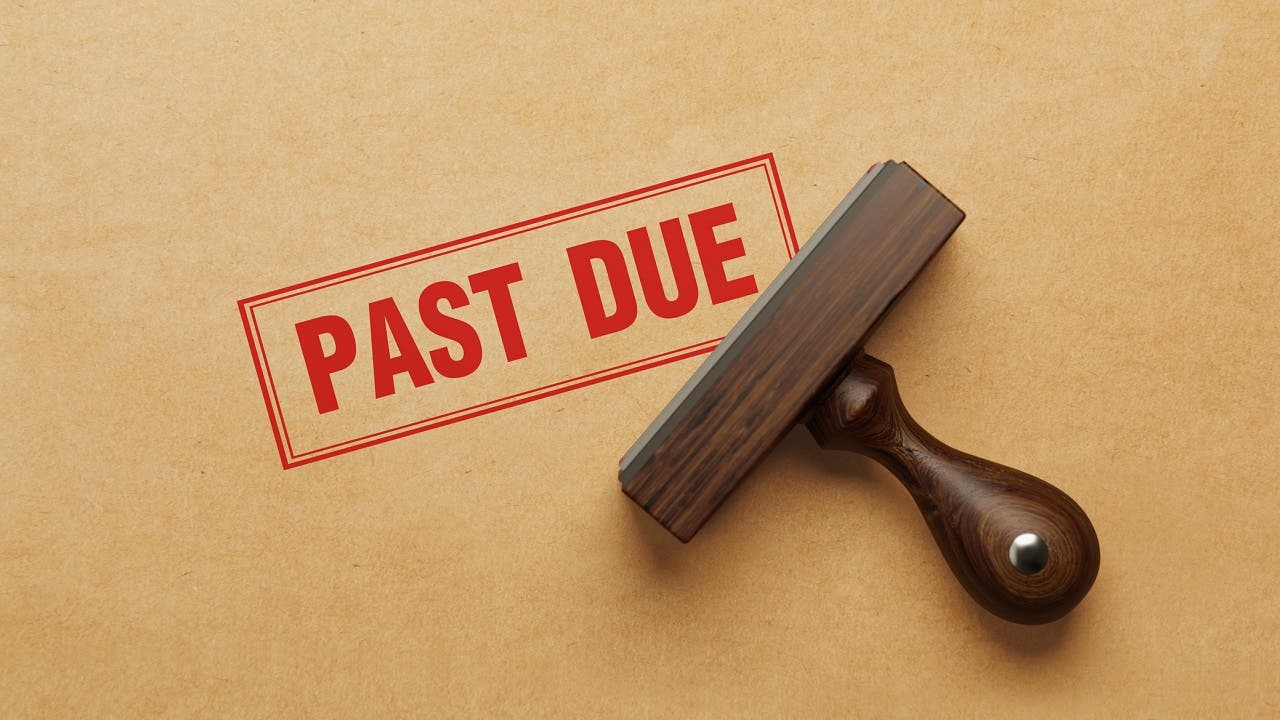What is a delinquent account?

Key takeaways
- An account delinquency occurs when you don’t pay a debt by the due date. If your payment is at least 30 days late, this information will likely be reported to the credit bureaus.
- Delinquencies can knock down your credit score and remain on your credit report for up to seven years. This hurts your short- and long-term financial health.
- The best way to prevent delinquencies is through proactive organization, debt management and contact with lenders and creditors when necessary.
Account delinquency is when a borrower who fails to make payments by the due date. In other words, the account holder hasn’t repaid the money under the agreed-upon amounts or repayment terms.
An account is considered delinquent when you don’t pay a minimum amount to a creditor or debtor by an agreed-upon due date. The amount that you were required to pay but did not is considered past due. Almost any account can become delinquent, including utility accounts, personal loans, credit card balances and property taxes. If this continues long enough, you’ll be considered in default.
Different delinquency levels have various consequences, depending on your lender’s or creditor’s requirements. A delinquent account might generate something as minimal as a late fee or as severe as losing your house or car.
What causes delinquent accounts?
When you borrow money, you and your lender agree on several things — specifically, how much you’ll pay back (the loan with interest) and for how long (the loan’s term). Student loans, credit cards, mortgages and auto loans all come with the expectation that you’ll submit a minimum monthly payment before an agreed-upon due date. Your account remains in good standing if you make those payments on or before that date.
If you fail to make payments on time, even by a day or so, your account is delinquent. But this doesn’t always mean a black mark on your credit report. Most lenders or creditors might not hold it against you if you are a day or two late on payment, though you could be charged late fees.
Some lenders and creditors offer a “grace period,” but it does not mean you can pay late. It’s the time between when your billing cycle closes and when your bill is due.
Don’t assume that you can delay creditor payments by a day, week or any other period. Always check with your lender regarding payment delays. Failing to do so means the creditor or lender could consider your account delinquent.
If delinquency lasts at least 30 days, the creditor or lender could report the account to the three credit bureaus (Equifax, Experian and TransUnion). Further delays in payments do more damage; it is always a good idea to catch up as soon as you can.
What are the consequences of delinquent accounts?
The initial consequences depend on how long the account is delinquent:
| Time since the last payment | Consequence |
|---|---|
| Less than 30 days | You will likely be charged a late fee. |
| More than 30 days | You will likely pay a late fee, plus a report will be sent to the three major credit bureaus. This can impact your credit score, and the missed payment will remain on your credit report for seven years. |
| More than 60 days | You will pay more late fees and are likely to receive phone calls and letters notifying you of the delinquent payments. |
| More than 90 days | Your account may be closed if it’s a credit card or personal loan, and if it’s a home or auto loan, you could receive a notice of the intention to foreclose or repossess the vehicle. |
| More than 120 days | Your name is passed on to a debt collection agency, and you can expect aggressive communication. If the debt is backed by collateral, like your home or car, you may be close to losing that property. |
A delinquent account’s long-term consequence is its impact on your credit score. On-time payments make up a significant part of that score. Specifically, your payment history (which includes making those on-time payments) represents 35 percent of your FICO score. The longer you delay paying your creditor or lender, the more likely your score will take a severe hit.
“Your creditor is allowed to report the delinquency to the credit bureaus when you miss a payment due, meaning your credit score could decrease immediately,” said attorney and personal finance expert Erika Kullberg.
Rick Miller, a financial planner and investment advisor with Miller Investment Management, added that even one late payment could lower a credit score by 50 to 100 points. “That black mark can remain for seven years,” he said.
Miller added that recent late payments can impact your ability to obtain new credit in the short term. “The longer the lenders are unsatisfied, the worse the impact will be,” he said. “Credit or loan defaults can eliminate your ability to get any kind of credit for years.”
Additionally, creditors and lenders will continue charging interest on that past-due debt. They can also sometimes charge a higher penalty APR or additional collection fees or charges to the account. Delinquencies may also cause you to lose access to promotional interest rates (like 0 percent APR balance transfer credit cards).
Don’t count on getting delinquent accounts removed from your credit reports, either. “Unless there is some error of fact associated with the late payment, the odds of getting a delinquency removed are remote,” Miller said.
How can you avoid delinquent accounts?
The best way to avoid delinquency is to ensure on-time payments on all accounts.
“Delinquency can be prevented with good organization and following through with your payments,” Kullberg said. “Consider setting up autopayments or reminders to minimize your chances of missing a payment date.”
However, if delayed payments are due to situations outside of your control (like a job layoff or sudden disability), let your creditor or lender know. “If you see delinquency coming, call the creditor and see if they will agree to work with you,” Miller said. “They might agree to accept partial payments for a month or two if things don’t improve.”
In some cases, you could qualify for a hardship program. Many lenders offer this benefit in the event of an income loss. Asking for this assistance tells the lender or creditor you’re doing whatever you can to avoid delinquency.
Other potential ways to avoid account delinquencies include the following.
Consolidate your debts
Consider debt consolidation if you’re carrying debt across multiple accounts. This consolidates all your debts into a single loan. One benefit is making a single payment rather than juggling multiple payment dates on all accounts.
Debt consolidation makes sense if the interest rate on the new loan is lower than what you’re paying on various accounts. Additionally, people with better credit scores are more likely to get better loan interest rates. However, be aware of additional fees and costs associated with the debt consolidation loan you’re considering.
You can consolidate debt through debt consolidation loans, balance transfer cards, home equity loans and home equity lines of credit.
Tap into your emergency savings account
If you have an emergency savings account, consider using the funds to keep your account/accounts in good standing.
Typical uses for an emergency account include unexpected expenses. However, avoiding delinquency and its consequences could fall into this category. Avoiding fees and long-term consequences of delinquency are a good use of these funds.
If you use emergency funds to pay down debt, don’t forget to build up your savings for future emergencies.
Recalibrate your budget
Avoiding account delinquencies might require a hard look at discretionary income and where to cut back to meet your monthly payments.
Examples might include canceling memberships or streaming subscriptions you no longer use to free up more money for paying debt. Even cutting expenses on small things (like a daily coffee at the local coffee house) could provide you with the needed cash to help ensure you make payments on time and your account doesn’t fall into delinquency.
Look into credit counseling/debt management
Approaching a nonprofit debt management company can help you build a realistic budget, which would include setting aside money to pay what you owe to creditors and lenders. Credit counselors working for such companies can approach creditors and lenders on your behalf and negotiate smaller payments or waived interest fees.
When looking for a trustworthy debt management company to help with what you owe, check for groups certified by the Financial Counseling Association of America or the National Foundation of Credit Counselors.
The bottom line
Late payments and delinquent accounts can create many problems, holding you back from financial well-being now and in the future. The best way to avoid delinquencies is to take a proactive stance. This means paying all bills on time and, if you can’t, contacting the companies that handle your accounts to determine the right solutions. Also, consider additional resources (like consolidation loans or credit counseling) to help you better manage debt.
Whether you’re working to rebuild your credit or want to maintain your credit score, keeping all accounts in good standing establishes a firm foundation for your long-term financial success.
Why we ask for feedback Your feedback helps us improve our content and services. It takes less than a minute to complete.
Your responses are anonymous and will only be used for improving our website.






